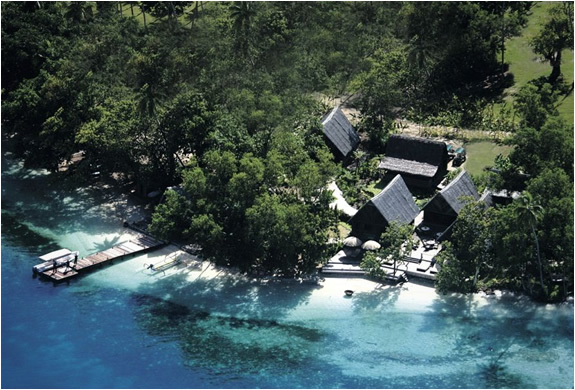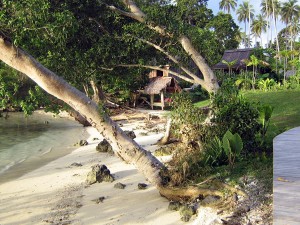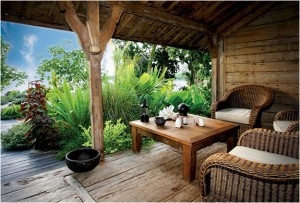A little-known island nation found to the north of Australia is being touted as a hot new travel destination, thanks in part to the buzz around a luxurious private island resort.
It may be approaching the chill of winter in the northern hemisphere, but the spate of recent travel articles about tropical destinations serves as a reminder that in many other places, the hot and sunny days of summer are just getting started. An interesting name, perhaps unfamiliar to many readers, has been appearing with glowing reviews in the Travel section of many international newspapers, from Canada and the United States to Australia and New Zealand – the undeniably exotic-sounding Vanuatu.
One of the last South Pacific nations to join the modern world – and you still won’t find chain restaurants or many recognizable brand names here – this remote archipelago of 83 isles was once known as the New Hebrides, until it declared independence from its century-old joint British/French colonial rule in 1980. The remnants of this odd pairing are still visible – on Ratua Private Island, which I had the pleasure of visiting just prior to its opening in 2009, half of the island’s palm forests are planted in orderly rows; the other half, a haphazard jumble of trees. Both those of British and French extraction insist, not without humour, on having planted the neat side.
The resort on Ratua Island is a surprising element of luxury, in a small and fairly poor island nation like Vanuatu; renting in entirety for as much as $20,000 AUD per night, this 24-bed resort almost seems more suited to the glamorous Seychelles or Maldives. The décor is an impeccable island chic, attentive staff members are constantly at the ready, and the fresh cuisine, much of it grown or caught just off the island, tastes incomparably vibrant and alive. What does distinguish Ratua from better-known private island regions, however, is its unique character.
The project of a wealthy French couple who came across the island on a holiday in 2005, Ratua has been long in the making. It has the intimate, personal feel of visiting a friend’s family estate, albeit a highly exotic one. Each of the island’s bungalows was dismantled and imported from Bali, some centuries old, and the furnishings and antiques of these and the restaurant all seem to beg for their stories to be heard. While on the island, an associate of the owners described to me how he scoured the world for just the right pieces to decorate the resort, bringing back treasures from Indonesia and Europe. The island also has a charitable bent – all proceeds from the resort benefit the owners’ Ratua Foundation, and are reinvested to support the local communities.
More than the anything else, however, Ratua’s people make it a truly special place. The locals of Vanuatu, known informally as the ni-Van, made headlines a few years ago when the country was dubbed the “happiest place in the world” by the Happy Planet Index. It could easily be true. The loud, joyful laughter of the staff often echoed throughout the resort, and suppliers like nearby fishermen had an (occasionally frustrating) tendency to work only as their immediate needs required. In Vanuatu, a pleasant sense of laissez-faire is a way of life, and being surrounded by so much happiness is a warming experience for even the most hardened traveller.
Getting there
Flights to Vanuatu depart regularly from Brisbane to the island of Espiritu Santo. Additional flights from Melbourne and Sydney connect through Vanuatu’s capital of Port Vila to Espiritu Santo. From the airport, it is approximately a 25-minute boat trip to Ratua Private Island.
Read more about Ratua Private Island: Chicago Tribune
Visit the official website: www.ratua.com





